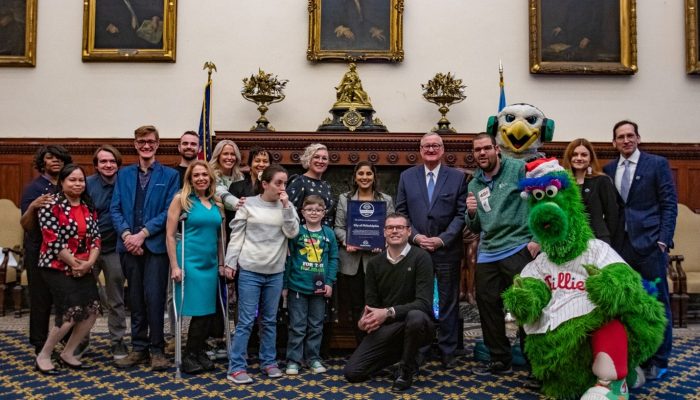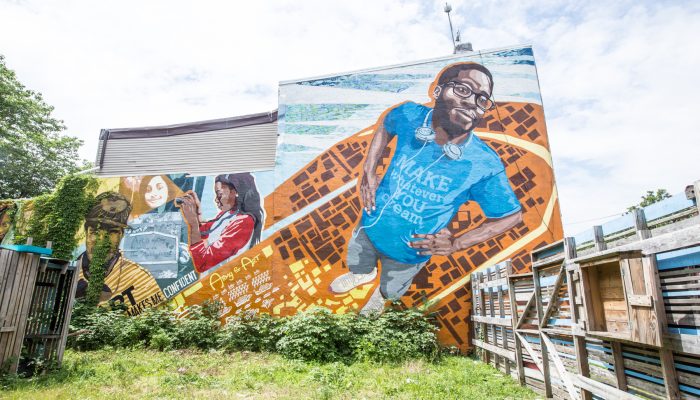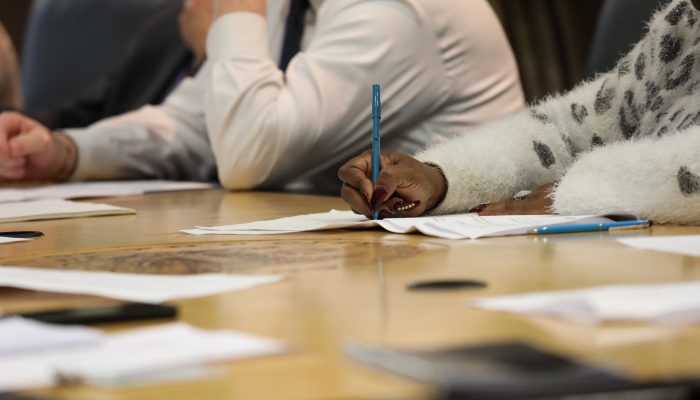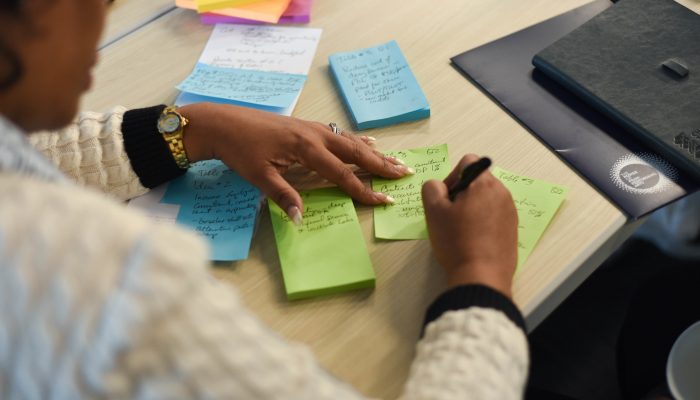The Mayor’s Office for People with Disabilities, in partnership with KultureCity, has successfully led Philadelphia to become the first certified Sensory Inclusive City! A press conference was held on December 19, 2023, where the city was presented with the designation and joined by KultureCity, community partners, Actor Stephen Kunken, the Philadelphia Phillies Phanatic, Philadelphia Eagle’s Swoop and residents.
Earlier this year, the Innovation Fund awarded the Mayor’s Office for People with Disabilities a grant to launch the city’s first-ever Sensory Inclusive Project to provide training and supportive elements to increase the awareness, understanding and available support to become a sensory inclusive city. Through the project’s partnership with KultureCity, the city was able to provide accessible, multilingual, and role-based training to its workforce in October and November 2023 as the first stage of the project.
Amy Nieves, Executive Director of the Mayor’s Office for People with Disabilities, leads this project alongside a cross-departmental advisory committee as an expansive effort to the existing accessibility and equity-based policies, priorities, and programs of the city. Philadelphia leads the 10 largest U.S. cities with a disability rate of 17%. Sensory sensitivities or challenges with sensory regulation are often experienced by individuals with autism, ADHD, PTSD, and other conditions; however, everyone can experience sensory needs at any time. This initiative also deepens our collective understanding that there are 8 senses of the human body, and they all intersect with the broader human and disability experience. Those 8 senses include Visual (Sight), Auditory (Sound), Olfactory (Smell), Tactile (Touch), Gustatory (Taste), Proprioception (Muscular/Joints), Vestibular (Balance and Motion), Interoception (Internal Organs/Functions). When we address sensory inclusion, we are recognizing and creating space for the entire community.
“We hope to create a more equitable Philadelphia for our workforce, residents and visitors and create sensory inclusive environments and engagements across our city by joining KultureCity in making the “nevers” possible,” said Amy Nieves, Executive Director, Mayor’s Office for People with Disabilities.
To date, more than 16,200 (and growing) City of Philadelphia workforce members across all departments have successfully completed the training, contributing to the creation of an inclusive city for all residents, visitors, and staff. The KultureCity Sensory Inclusion training embodies a universal design that is fully accessible, granting individuals autonomy and the freedom to choose their preferred language and role specific training. With nine different versions available, this diverse approach has been a key factor in the program’s success among the workforce.
Departments that surpass the 50% mark in staff completion are additionally acknowledged as Sensory Inclusive Departments. Overall, more than 70% of the city’s workforce are now Sensory Inclusive Leaders and the numbers continue to grow! This was a monumental achievement where our numerous departments have various focuses, span multiple locations and shifts, and not all employees have access to a computer as part of their role and responsibilities. Staff gathered around mobile devices, took together in meetings, or at a time that worked for them, and the results were incredible. Philadelphia is now better prepared to assist residents and guests with sensory sensitivities and foster more welcoming workplace culture for our employees.
“Our communities shape our lives and to know that the City of Philadelphia is willing to go the extra mile to ensure everyone, no matter their ability, is included in community experiences is amazing,” said Uma Srivastava, Executive Director, KultureCity.
The city plans to launch a Sensory-Inclusive lending program in early 2024 as the second phase of the project. This program will provide access for departments to sensory bags and three mobile sensory stations for use around internal or community engagements. The aim is to create a more inclusive environment while ensuring equitable access to city programming for all.
Philadelphia’s journey to become a certified Sensory Inclusive City is a testament to its commitment to diversity, equity, and inclusion in action. Philadelphia is better positioned to ensure all visitors, residents and members of its workforce feel welcomed, supported, and have more equitable engagement opportunities regardless of how they move their bodies, communicate, use their minds, or share their voices. Philadelphia hopes to inspire other cities and communities to follow suit in creating a more inclusive and accessible future. This project and commitment are building blocks in our many efforts to create a safe, accessible, and equitable city for all.




